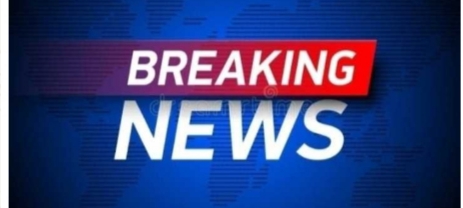Cameroon Opposition Leader Tackles Paul Biya, Calls Re-Election “Masquerade” Amid Protests
The country’s Constitutional Council on Monday declared Biya, 92, winner of the October 12 presidential election with 53.7 percent of the vote.
Cameroon’s veteran ruler, Paul Biya, has secured an eighth term in office, extending his more than four decades in power — but his main rival, Issa Tchiroma Bakary, has rejected the results, describing the election as a “masquerade.”
The country’s Constitutional Council on Monday declared Biya, 92, winner of the October 12 presidential election with 53.7 percent of the vote.
His closest challenger, Issa Tchiroma Bakary of the Front for the National Salvation of Cameroon (FNSC), finished second with 35.2 percent.
“There was no election; it was rather a masquerade. We won unequivocally,” Tchiroma told AFP shortly after the announcement.
The opposition leader, a former government minister, had claimed victory two days after the polls closed and urged his supporters to take to the streets in protest.
Tensions have since escalated. A rally outside Tchiroma’s home in Garoua, northern Cameroon, reportedly turned violent, leaving two protesters dead, according to the opposition figure.
He alleged that ten snipers were posted on rooftops.
An AFP reporter confirmed witnessing one man being shot but could not verify his death.
In the economic capital, Douala, at least four people were killed on Sunday when security forces clashed with opposition supporters, according to the regional governor.
Witnesses said police initially fired tear gas before using live ammunition to disperse the crowd.
The official voter turnout was 46.3 percent, as the nation awaited the results for over two weeks amid heightened political tension and security crackdowns.
Other contenders, including Cabral Libii (3.4 percent), Bello Bouba Maigari (2.5 percent), and Hermine Patricia Tomaino Ndam Njoya (1.7 percent)— the only female candidate—trailed far behind.
Meanwhile, eight remaining candidates each received less than one percent of the vote.
Public gatherings have been prohibited and traffic movement restricted across most major cities since polling day.
However, beginning last week, supporters of Tchiroma have flooded the streets to defend his self-declared victory.
According to his own vote count, Tchiroma claimed to have secured 54.8 percent of the ballots, compared to 31.3 percent for President Paul Biya.
In a speech last Wednesday, he reaffirmed his confidence in winning the election and urged Cameroonians to protest if the Constitutional Council released what he described as “falsified and distorted results.”
By early Monday morning, police and security forces had been deployed at key intersections and strategic locations throughout the capital, Yaoundé.
In Garoua, a protester waving the Cameroonian flag approached police officers during a gathering on October 26, 2025.
Authorities said the deployment was meant to “ensure the security of the electoral process and prevent any disorder.”
Fearing possible clashes, many shops and petrol stations remained closed, and traffic was noticeably sparse.
Despite the growing unrest, most political observers predicted another seven-year term for Biya, in what critics describe as a tightly controlled system.
Biya, who has ruled Cameroon with an iron grip since succeeding the country’s first post-independence leader in 1960, has long faced accusations of repressing dissent, crushing opposition movements, and clinging to power amid social tension, economic hardship, and separatist conflict.
Tchiroma, in his campaign manifesto, pledged a three- to five-year transitional government aimed at rebuilding what he called a nation “ruined by Biya’s decades in power.”



